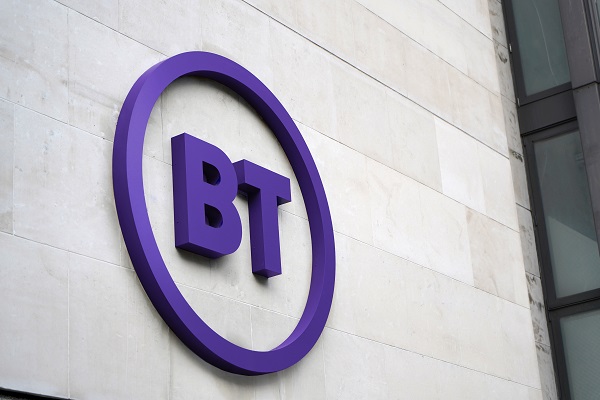Your vote counts: what to expect at BT, British Land and Burberry AGMs
9th July 2021 09:26
by Graeme Evans from interactive investor
Three of the UK’s biggest and most British of companies explain themselves to shareholders, albeit remotely, over the next few days.

The fallout from a bruising AGM season has continued after the chairman of one of the companies to suffer a big shareholder revolt announced plans to step down.
Ian Barlow's departure comes three months after estate agent Foxtons saw almost 40% of shareholder votes go against its remuneration report, having given chief executive Nic Budden a big bonus despite the company receiving government support.
The move follows a lacklustre recent share price performance and pressure from one of the company's biggest shareholders for “radical boardroom level change”. Barlow steps down as he approaches the final year of the usual nine for directors under governance best practice.
- Shares for the future: everything you need to know
- Make a difference and use your vote this AGM season
- Take control of your retirement planning with our award-winning, low-cost personal pension
Foxtons has been one of several companies on the receiving end of shareholder revolts, with others including Morrisons and Whitbread. Next week sees more blue-chips companies in the spotlight as BT Group (LSE:BT.A), British Land (LSE:BLND), Burberry Group (LSE:BRBY) and Dublin-based DCC (LSE:DCC) are due to stage AGMs.
BT (Thursday 15th)
BT boasts one of the largest ownership bases of any FTSE 100 company, with the approximate figure of 783,000 shareholders the legacy of its Buzby-branded privatisation in 1984.
This means its annual meeting is typically among the best attended of the AGM season, although for the second year running shareholders are being encouraged to attend the event remotely.
Restrictions on public gatherings will still be in place at the time of the meeting at London's Old Billingsgate, meaning the event will be broadcast live so shareholders can follow.
The tone of this year's AGM should be much more upbeat, given that shares have rallied by more than 50% to breach the 200p threshold earlier this summer. There are several reasons for the optimism, not least Ofcom's light-touch approach that will leave BT's Openreach arm free from cost-based price regulation for 10 years.
This prompted a pledge by chief executive Philip Jansen to “build like fury” to roll out ultra-fast internet speeds to 25 million buildings by December 2026.
Favourable developments regarding super-deduction tax breaks, the triennial pension deficit and 5G spectrum auctions have also helped shares, alongside intrigue over the intentions of multi-billionaire telecoms dealmaker Patrick Drahi after he built a 12% stake.
It's a far cry from November, when shares dipped below 100p after Jansen axed the dividend and rebased expectations despite the working-from-home trends created by the pandemic. Guidance for 2021/22 points to a resumption of the dividend at an annual rate of 7.7p a share.
- Top 20 most-bought UK shares in Q2 2021
- ii view: look who just bought 12% of BT Group
- Subscribe to the ii YouTube channel and catch all our latest interviews and video content
Basic earnings per share fell 15% to 14.8p in the year to the end of March, but Jansen will still receive a £1.3 million bonus after BT hit targets on benchmarks for adjusted earnings and normalised free cash flow, which account for 70% of the scheme's calculations.
Jansen had been in line for a higher figure, but the remuneration committee capped executive bonuses at 100% of the target compared with the actual outturn of 129%. As was the case last year, Jansen and finance boss Simon Lowth will defer their annual bonuses in full into shares for three years.
There will be no payment under the 2018 long-term incentive scheme after performance came in below thresholds, including total shareholder return and revenues growth. Jansen, who last year donated six months of his pay to health charities and small businesses in his local community, won't receive an increase in his £1.1 million base salary this year.
Pay has been frozen for all staff, but BT this year plans to award a special bonus to frontline workers of £1,000 in cash and £500 in shares to recognise their efforts during the pandemic.
Institutional Shareholder Services described this year's bonus payment for directors as “substantial”, although it adds that the use of downward discretion and deferral into shares meant qualified support from shareholders for the remuneration report is warranted. Another voting advisory group, Glass Lewis, also recommends voting in favour.
The meeting will be chaired for the final time by Jan du Plessis, whose four years at the helm have been overshadowed by a consistent decline in the BT share price.
The former Rio Tinto (LSE:RIO) and SAB Miller chairman is encouraged, however, by a significant improvement in the company's relationship with Ofcom since 2017.
He told shareholders: “In a few short years, the number of premises passed by Openreach has increased more than tenfold from 420,000 premises to 4.6 million. And Openreach is now building at pace – aiming to ramp up its build rate to four million homes and businesses a year.”
The search for his successor is being led by senior independent director Iain Conn, who is the former boss of Centrica.
Burberry (Wednesday 14th)

Burberry shares fell as much as 10% on the day highly regarded chief executive Marco Gobbetti surprised the City by announcing his intention to return to his native Italy.
Next year's switch to footwear brand Salvatore Ferragamo is a blow for investors as well as for fund manager Nick Train as LF Lindsell Train is Burberry's biggest shareholder through a 9.8% stake.
Gobbetti's departure is likely to overshadow the forthcoming AGM, given that Burberry recovered sufficiently from the pandemic's impact to be able to reinstate the full-year dividend at the 2019 level of 42.5p per share. Operating profits were 9% lower at £396 million.
The maximum annual bonus for executive directors is normally 200% of base salary, but this was reduced at the start of the last financial year to 50% due to the uncertainty of Covid-19.
- ii view: Burberry confidently restarts the dividend
- Nick Train apologises for short-term underperformance
- Top 20 most-bought UK shares in Q2 2021
The remuneration committee also modified their approach to determining the bonus outcome by considering the company's response to the pandemic, as well as sustainability metrics, overall business performance and the shareholder experience.
This resulted in Gobbetti receiving the maximum amount possible of £570,000, on top of his base salary, pension entitlements and other benefits totalling £1.5 million. The vesting of a long-term incentive scheme took his total remuneration for 2020/21 to £2.2 million.
Burberry notes that executives took a voluntary reduction of 20% of their salaries between April and June, with the sum going to the Burberry Foundation Covid-19 community fund.
Voting advisory groups Glass Lewis and Institutional Shareholder Services said the remuneration report should pose no concerns for Burberry shareholders.
British Land (Tuesday 13th)
New chief executive Simon Carter and predecessor Chris Grigg voluntarily reduced their bonuses for last year to 80% of salary, a level that Institutional Shareholder Services (ISS) said still appeared high in the context of the company's financial performance.
Former finance boss Carter took over running the office and shopping centre landlord in January after Grigg ended his 11-year tenure with the FTSE 100 company.
Carter received an annual bonus of £473,000 for 2020/21 to take his total remuneration to £1.15 million, while Grigg got a £524,000 bonus for a total figure of £1.3 million. Their bonus was scaled back from 94% to 80%, out of a maximum opportunity of 150% of salary.
- ii view: British Land sets out new strategy
- Insider: this FTSE 100 stock is available at a discount
- Seven ‘buy and forget’ shares for investors with time on their side
- Check out our award-winning stocks and shares ISA
The lack of visibility on retail rental income at the start of the year prompted the remuneration committee to focus the usual profits element on costs and to delay setting profit targets for the rest of the year until September.
The awards came during a year in which earnings per share fell 42% to 18.8p and the dividend for the period reduced 6% to 15.04p.
ISS said: “Overall, the bonus raises concerns, but there appear to be enough mitigating factors to warrant qualified support in the absence of any other major concerns.”
The voting advisory group added that the new CEO's lower salary relative to his predecessor, the temporary reduced fixed pay during the first months of the pandemic and a lower 2020 long-term incentive scheme should also assuage concerns.
These articles are provided for information purposes only. Occasionally, an opinion about whether to buy or sell a specific investment may be provided by third parties. The content is not intended to be a personal recommendation to buy or sell any financial instrument or product, or to adopt any investment strategy as it is not provided based on an assessment of your investing knowledge and experience, your financial situation or your investment objectives. The value of your investments, and the income derived from them, may go down as well as up. You may not get back all the money that you invest. The investments referred to in this article may not be suitable for all investors, and if in doubt, an investor should seek advice from a qualified investment adviser.
Full performance can be found on the company or index summary page on the interactive investor website. Simply click on the company's or index name highlighted in the article.